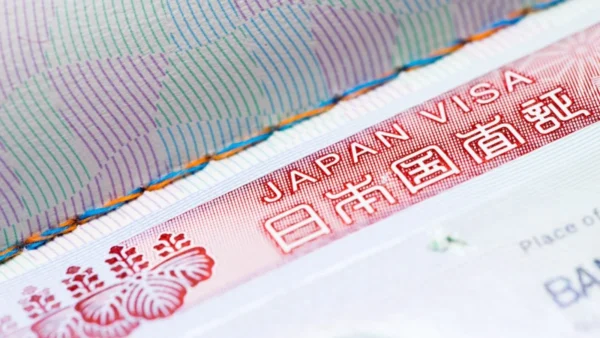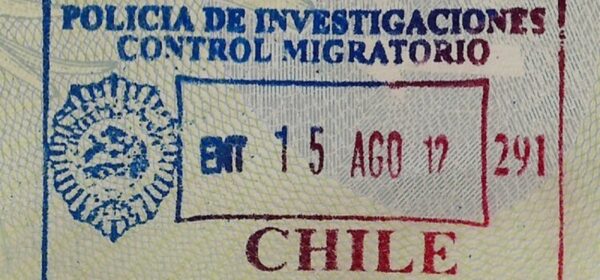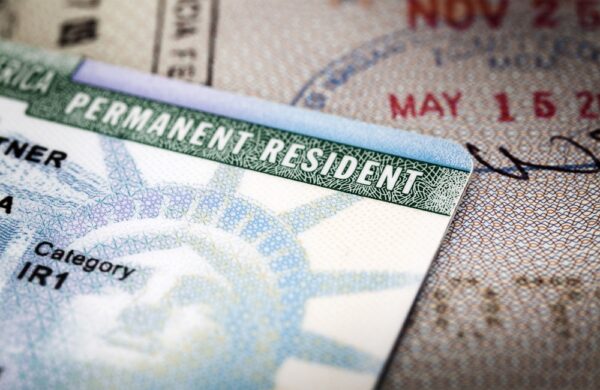Japan immigration requirements can appear daunting, but they are crucial to understand if you dream of living in this captivating country. If you are about to begin working, studying, or immigrating to Japan, you're covered. The process involves a series of steps, starting from analyzing the visa type to understanding some requirements and required documents. For workers, the most common skills-based categories are the Highly Skilled Professional Visa or the Specified Skilled Worker Visa.
For students, it is necessary to have an admission letter from an appropriate institution and availability of funds. As long as you satisfy the immigration requirements, Japan is one of the places that many expatriates wish to go to because of its rich cultural appeal, developed and wealthy economy, and high living standards. With proper preparation, moving to Japan can be easy and smooth.
Who Needs a Visa to Immigrate to Japan?
Your country of origin and the reason for your trip will determine whether you require a visa. For instance, you most likely won't require a Japanese visa if you are visiting Japan for business or pleasure, and your stay won't exceed three months. However, if you want to relocate to Japan, you must get a long-term stay visa at the Japanese embassy/consulate in your country of origin. US citizens can visit Japan without a visa for periods of up to 90 days. However, they'll also need to apply for a long-term visa if they intend to move to Japan permanently.
Japan Immigration Requirements
The Ministry of Foreign Affairs website shows that obtaining a long-term residence is easy. The requirements list consists of simply four items:
- A visa application form
- One passport
- One photograph
- A work visa (for those intending to work)
- Certificate of Eligibility (COE)
How to Immigrate to Japan

There are several reasons why foreign residents can decide to settle in Japan permanently. But first, you must apply for a long-stay visa. Japanese long-term stay visas are classified into many kinds. As a result, you can obtain a long-term visa for employment, education, or family reunification. If you intend to stay in Japan for a long time, you must first get a Certificate of Eligibility. After obtaining a visa, you will be granted a Landing Permit on entry, which will take the place of your visa and enable you to remain in Japan lawfully. You can also work remotely in Japan with a digital Nomad Visa. Here are the different ways you can move to Japan:
1. Moving to Japan for Study
To stay in Japan for a long time while enrolled in an educational institution, a foreign national must have a student visa. You can get this from the Japanese Embassy/Consulate in your country of origin. But before you can proceed with your student visa application, your institution must issue you the Certificate of Eligibility. Student visas are valid for up to two years. You always have three months before your visa expires to seek an extension of stay. Working more than 18 hours per week is not permitted with a student visa.
2. Moving to Japan to Work
If you want to relocate to Japan for employment, you must first obtain a work visa. Japan has three types of work visas for which you can apply:
- Regular Japan working visa
- Japan working holiday visa
- Japan highly skilled professional visa
Getting the right type of visa is essential if you intend to stay in Japan for a long time. Before filing for a Work Visa, your Japanese employer must first get a Certificate of Eligibility from Japan's Immigration Services. After receiving your Certificate of Eligibility, you can proceed with applying for a work visa at the nearest embassy/consulate in your place of residence. After getting your work visa, you can enter the nation and bring your family with you.
3. Moving to Japan for Family Reunification
A Japan family visa allows you to visit family members who are Japanese citizens living in Japan. In order to be a family visa holder, you must:
- Be married to a Japanese citizen
- Be a Japanese national's dependent child
- Be a dependent child or spouse of a foreign national living in Japan.
To start the process of applying for a spouse visa, your relative in Japan must submit your application for a Certificate of Eligibility. Applications for spouse visas are sent to the Japanese consulates or embassies in your nation. This kind of visa is valid for a maximum of three years and may be renewed. Being married to a Japanese citizen (or permanent resident) allows you to work in Japan on a family visa.
Document Requirements for Immigration Visas Application
Knowing Japan immigration requirements is crucial for a successful application. Here are the general travel documents for the visa applications:
- Passport-size picture
- Bank certificate
- Flight itinerary
- Daily itinerary
- A valid passport
- Proof of accommodation
- Proof of financial solvency
- Letter of invitation
- Proof of clean criminal record
This isn't a complete list; depending on the type of visa you're applying for, you might need additional documents.
Student visa requirements
- Student visa application form
- Letter of admission into Japanese school
- Previous academic/professional qualifications
- Proof of sufficient funds
- Letter of guarantee
- Letter of invitation from a Japanese institution
- A cover letter
Work visa requirements
- Japanese work visa application form
- Documents proving previous professional history
- Documents proving artistic achievements (if applicable)
- Documents that specify your role in the Japanese organization, your expected salary, and the length of your employment.
Family visa requirements
- Japan spouse visa application form
- Marriage/birth certificate
- Copies of the sponsor's passport
- Copies of the sponsor's residence card
- A letter of guarantee
Japan Visa Application Process
After we’ve discussed Japan immigration requirements, let’s move to the visa application process. The application process for applying for the study, work, and family visas involves the following steps:
1. Get the Certificate of Eligibility
The Japanese Immigration Services must issue a Certificate of Eligibility to any foreign national entering Japan for a non-temporary stay. However, you have to get this before traveling to Japan, so your school, spouse, or employer will handle the application on your behalf. After receiving the Certificate of Eligibility, it must be sent to you so that you can apply for the visa at a Japanese Consulate or Embassy in your home country. The COE application process takes one to three months.
2. Contact a Japanese Embassy or Consulate Nearby
The Japanese Consulates, Embassies, and Permanent Missions are listed here. In certain cases, you must apply through a recognized travel agency or visa application agency because some embassies and consulates do not accept direct visa applications.
3. Gather the Required Documents and Submit
Submit your application to any Japanese consulate or authorized travel agency. The Consulate or Embassy may also require you to return for an interview or to provide more documentation if they find it important.
4. Collect the Visa
After your visa application is finalized, you must return to collect your passport. If your application has been approved, you may enter Japan with no travel restrictions.
Japan Immigration Visas Processing Time
The processing time for a Japan work, study, and family visa is 5 to 10 days. However, the application for a certificate of eligibility can take up to three months.
Most Popular Cities in Japan for Immigrants
Here are some of the best places to live for expats:
1. Tokyo
You're not alone if you're thinking of relocating to Tokyo. Tokyo, the nation's capital, is a popular destination for foreign workers. It's a big metropolis with a lot going on and a comparatively hectic lifestyle. The cost of renting in Tokyo will be a significant drawback. The general monthly rent for a one-bedroom apartment in the heart of the city is more than $1,000.
2. Sapporo
As the former host of the Winter Olympics, Sapporo may be familiar to those who enjoy winter sports. There is plenty of nature to explore, milder summers than many places, and a long winter with loads of snow, making it an excellent place for skiers. This city has some of the lowest rents of any of our top picks; a decent one-bedroom apartment in the center can be found for an average of $400 per month, and if you're content to live outside of the center, it can be found for only $250 per month.
3. Fukuoka
Even though Fukuoka is smaller than Tokyo, a foreign national will still experience a trendy vibe at a lower price. It's an excellent destination for entrepreneurs and others interested in the startup environment, with plenty going on and some wonderful culture to discover. Rent is around 500 USD/month in the city center but less than 350 USD/month outside of it.
4. Osaka
The average rent for a one-bedroom in the center of Osaka is less than 600 USD, which is less expensive than in Tokyo. As the second-largest economic center in Japan, Osaka is still a wonderful spot to hunt for work because of its welcoming population and authentic food culture. It's bustling and modern, but if you want a little history and a gentler pace for a weekend, it's only a half-hour train ride from Kyoto.
5. Kyoto
If you have ever traveled to Japan, you have probably visited Kyoto, the historical center of the nation and the birthplace of geisha culture. Kyoto is a popular tourist destination with enough to do if you decide to stay longer. The average rent for a one-bedroom in the city center is approximately 550 USD, while those outside the center will likely pay less than 350 USD.
How Can I Learn Japanese Before Moving to Japan?
There are several different ways to study Japanese before moving to Japan. Japanese language classes are available through online language learning resources such as Rosetta Stone and Duolingo. Nearby universities or community colleges may also offer Japanese language instruction. You can also improve your learning by participating in language exchange programs and watching Japanese TV series or films with subtitles.
Do Immigrants Have Access to Healthcare in Japan?
Japan provides immigrants with access to a modern medical care system. The Japanese government ensures that national health insurance is available to foreign residents and pays for a percentage of medical costs. Prioritize preventative treatment and frequent check-ups, get a health insurance card, and look for healthcare professionals who meet your needs.
Conclusion
Relocating to Japan can be a thrilling and transformative experience, but it also demands thorough planning and preparation. A successful migration involves many stages, from understanding Japan immigration requirements and cultural richness to negotiating the visa procedure and living in Japan. A new era of opportunity awaits you!
















